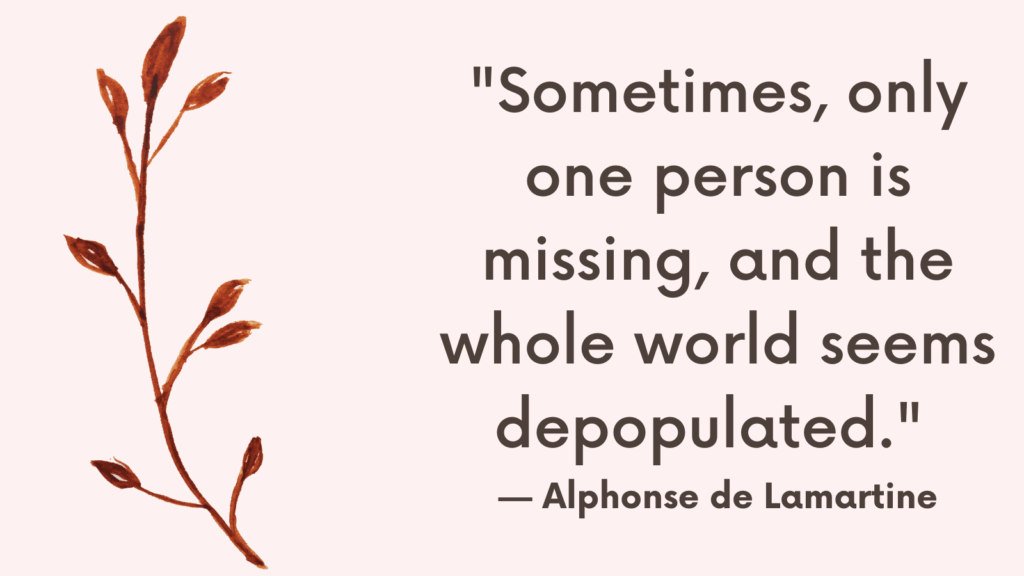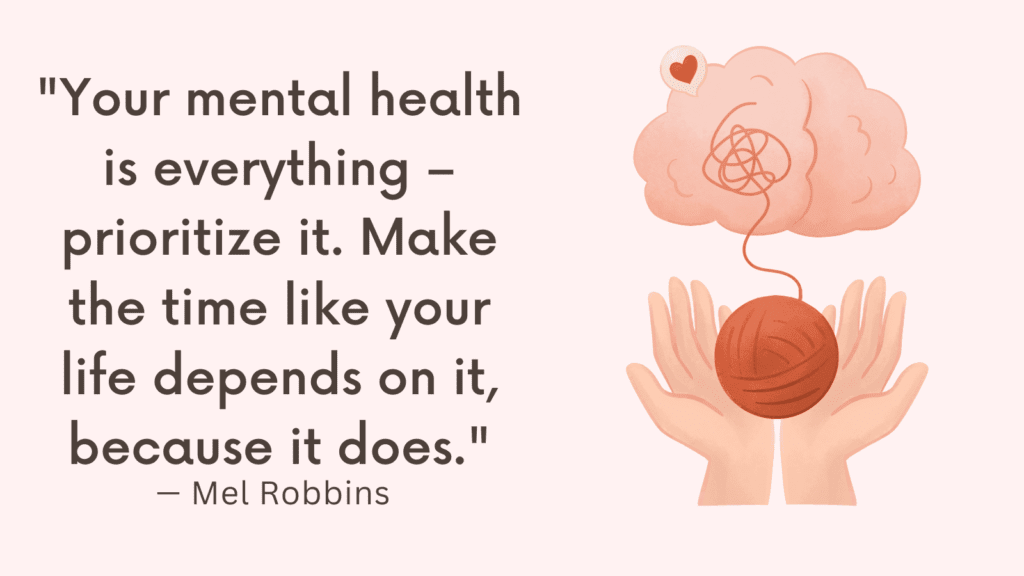In this post, you’re going to find out how widows can cope with loneliness.
Disclosure: Some of the links below are affiliate links. This means that, at zero cost to you, I will earn an affiliate commission if you click through the link and finalize a purchase.
Widowhood and Loneliness
Loneliness is a feeling of isolation or disconnection from others.
It can occur when an individual lacks meaningful social connections or feels disconnected from those around them.
Losing a spouse can be a very difficult and emotionally taxing experience.
It is completely normal for a widow to feel lonely after losing their partner as they are no longer able to share their day-to-day experiences with them.
The feeling of emptiness and loss can make it hard for the widow to connect with others, even family and friends.
Related: Best +30 Grief Activities For Adults (+FREE Worksheets PDF)
Emotional and Psychological Impact of Loneliness on Widows
1. Depression
One of the most common emotional impacts of loneliness is depression.
Widows who feel lonely often experience feelings of sadness, hopelessness, and a lack of energy.
They may lose interest in activities they once enjoyed and struggle to find meaning and purpose in their lives.
2. Anxiety
Loneliness can also lead to anxiety.
Widows may worry about their future, their health, and their safety.
They may feel more vulnerable and struggle to sleep at night, which can further exacerbate their anxiety.
3. Low Self-esteem
Social isolation can also have a negative impact on a widow’s self-esteem and sense of self-worth.
They may feel like they are no longer valued or connected to others, which can lead to feelings of worthlessness.
Related: Grief Comes In Waves: Top 12 Lessons From Grief No One Talks About
How Do Widows Cope With Loneliness?
Coping with loneliness can be a challenging experience for anyone, especially for widows who have lost their significant other.
Here are some ways that widows can cope with loneliness:
1. Create New Routines
One way for widows to cope with loneliness is to create new routines for themselves.
This may involve finding new activities or hobbies to fill their time, taking up a new sport or exercise routine, or starting a new project.
Creating a routine can help provide structure and purpose to each day, and can also help to facilitate social connections with others who share similar interests.
2. Practice Self-Care
Widows should also prioritize their own self-care, making time for activities that promote relaxation and rejuvenation, such as meditation, yoga, or massage therapy.
Additionally, maintaining a healthy diet and exercise routine can help to improve overall well-being and reduce stress levels.
3. Allow Yourself Time And Space To Grieve
Losing a spouse or partner can be one of the most challenging experiences in life, and you need time to process your emotions fully.
It’s essential to allow yourself to feel the pain, sadness, and anger that comes with such a loss.
Don’t try to suppress these feelings or pretend that everything is okay. It’s okay to cry, scream, or feel numb.
Every emotion is valid, and you should honor them all.
You may also find comfort in seeking support from family and friends, joining a bereavement support group, or talking to a therapist who specializes in grief counseling.
Grieving is a process, and there is no right or wrong way to do it.
Be kind to yourself and take things one day at a time. Eventually, you will learn to live with the loss, but it’s important to give yourself permission to grieve properly.

Related: Resilient Grieving: Best 17 Ways To Manage Grief In The Workplace (+FREE Grief Worksheets)
4. Strengthen Existing Relationships
Another way to cope with loneliness is to strengthen existing relationships with family and friends.
Regular communication and interaction with others can help to alleviate feelings of isolation and provide a sense of belonging and community.
5. Set Realistic Goals
Setting realistic goals for oneself can be helpful in coping with loneliness.
This might involve pursuing a new career or educational opportunity, planning a trip, or simply working on personal growth and development.
Having tangible goals to work towards can provide a sense of purpose and fulfillment, and can also help to mitigate feelings of sadness or loneliness.
Related: Grieving Someone Who Is Still Alive – Ambiguous Grief
6. Adopt a Pet
Adopting a pet can be one way that some widows might cope with loneliness.
Pets, such as dogs and cats, can provide companionship, love, and comfort.
They can also provide structure to daily routines, encourage physical activity, and stimulate mental health.
However, adopting a pet is a significant responsibility and decision that should be carefully considered, taking into consideration factors such as financial resources, lifestyle, and living arrangements.
7. Explore New Hobbies or Interests
One of the best ways to combat loneliness is by exploring new hobbies or interests.
By trying something new, widows may feel stimulated and engaged, and it may provide them with a sense of purpose and accomplishment.
For example, they could consider taking up a new sport or fitness regime, which would allow them to improve their physical health while also meeting new people.
Another option could be to take up a creative hobby like painting, drawing, photography, or writing.
These activities can be very therapeutic and provide a healthy outlet for emotions. Or, they could take classes or workshops to learn a new skill or pursue a long-held passion.
Related: Cumulative Grief: How To Cope With Bereavement Overload?
8. Join a Class or Club
One way for widows to cope with loneliness is to join a class or club.
This can be a great opportunity to meet new people and engage in activities that they enjoy.
Joining a class or club can also provide a sense of purpose and fulfillment, which can be very important during the grieving process.
Additionally, it can help widows develop new skills and hobbies, which can be a great source of pride and accomplishment.
Some examples of classes or clubs that may be helpful for widows include:
1. Exercise classes, such as yoga or Pilates
2. Book clubs
3. Painting or art classes
4. Cooking classes
5. Volunteer organizations
6. Local community groups for seniors
9. Volunteer
Volunteering is an excellent way to meet new people and give back to the community.
You can volunteer at a local charity, hospital, or community center.
10. Read Books on Widowhood
Reading books on widowhood can be helpful in providing support, guidance, and comfort during a difficult time.
These books are often written by experts or individuals who have experienced the loss of a partner themselves, and they can provide valuable insights into the grieving process and how to manage the challenges that come with it.
Related: Grief Resources (FREE Worksheets, APPS, Podcasts, TED Talks, Books)
Conclusion
Loneliness can have a significant emotional and psychological impact on widows.
For many widows, losing their spouse can be an incredibly traumatic experience.
They may feel isolated, disconnected, and unsure of how to move forward with their lives.
The important thing is for widows to find ways to stay active and engage with the world around them, rather than isolating themselves.
By doing so, they can overcome feelings of loneliness and make meaningful connections with others.



